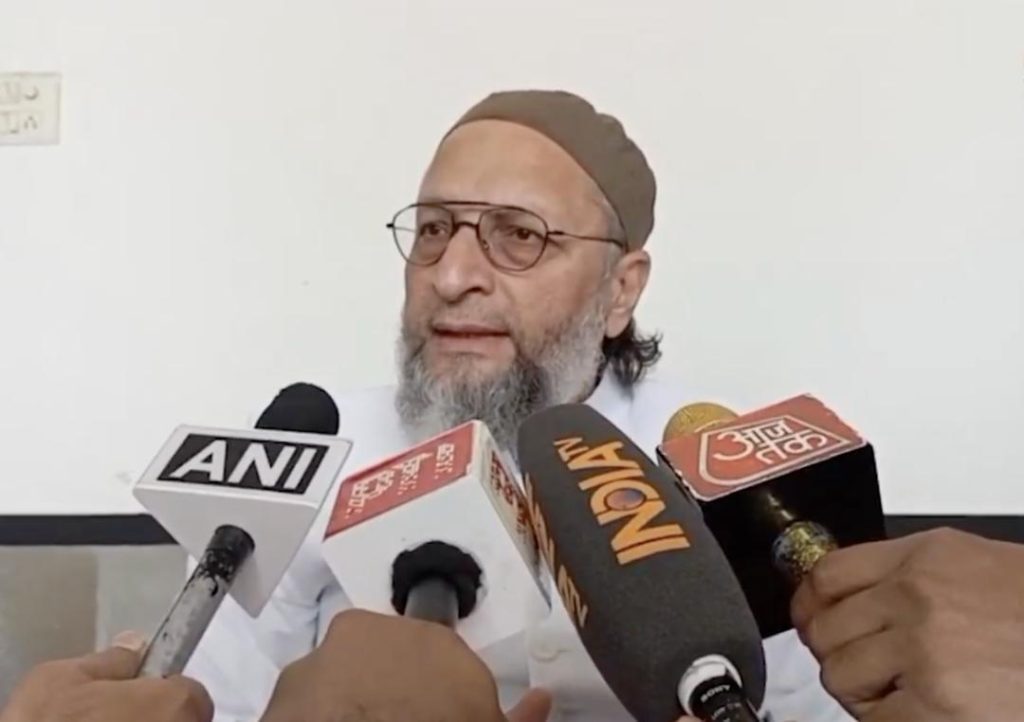
Arrest 4-5 ministers & govt is gone: Owaisi on PM-CM removal Bills
In a recent development, the Indian government has introduced a new bill that allows for the removal of Prime Ministers, Chief Ministers, and Ministers who are arrested for at least 30 days. The AIMIM chief, Asaduddin Owaisi, has strongly spoken out against this proposal, stating that it would give the President the power to remove the Prime Minister, and that the government would collapse if just a few ministers were arrested.
The Constitution (130th) Amendment Bill, as it is known, was introduced by the government in an effort to address the issue of corruption and accountability in the country’s political system. However, Owaisi and many others have raised concerns that the bill could be misused to target political opponents and undermine the democratic process.
In an interview, Owaisi said, “This proposed bill is saying that the President can remove the Prime Minister. What is this? Just arrest four-five ministers, and government is gone.” He further emphasized that the bill would give the President too much power, and that it would be a blow to the democratic system.
Owaisi also pointed out that the bill would create a situation where the Prime Minister would be at the mercy of the President, and that it would be a recipe for chaos. He said that the Prime Minister would be unable to take any decision without the consent of the President, and that it would be a major setback for the country.
The AIMIM chief also expressed his concern that the bill would be used to target political opponents, and that it would be a violation of the fundamental rights of citizens. He said that the government was trying to silence the opposition by introducing this bill, and that it was a desperate attempt to cling to power.
Owaisi also criticized the government for introducing the bill without consulting the opposition parties. He said that the government was trying to push the bill through without any debate or discussion, and that it was a violation of the democratic process.
The opposition parties have also strongly criticized the government for introducing the bill. They have said that it is an attempt to undermine the democratic system, and that it would give the President too much power. They have also expressed their concern that the bill would be used to target political opponents and undermine the fundamental rights of citizens.
The AIADMK, the TMC, and the DMK have all spoken out against the bill, saying that it would be a blow to the democratic system. The AIADMK has said that the bill would give the President too much power, and that it would be a violation of the Constitution. The TMC has said that the bill was an attempt to silence the opposition, and that it would undermine the democratic process. The DMK has said that the bill would be used to target political opponents, and that it would be a violation of the fundamental rights of citizens.
The introduction of the bill has also sparked a heated debate within the ruling party. Some members of the party have spoken out against the bill, saying that it would give the President too much power and undermine the democratic system. Others have supported the bill, saying that it was necessary to address the issue of corruption and accountability in the country’s political system.
The debate over the bill is likely to continue in the coming days, and it remains to be seen how the government will respond to the criticism. However, one thing is clear: the introduction of the bill has sparked a major controversy, and it will be a major test for the government’s commitment to democracy and the rule of law.
At the end of the day, the fate of the bill will depend on the outcome of the debate and the votes in the Parliament. But one thing is certain, the introduction of the bill has raised serious concerns about the government’s intentions and its commitment to the democratic process.
Sources:






